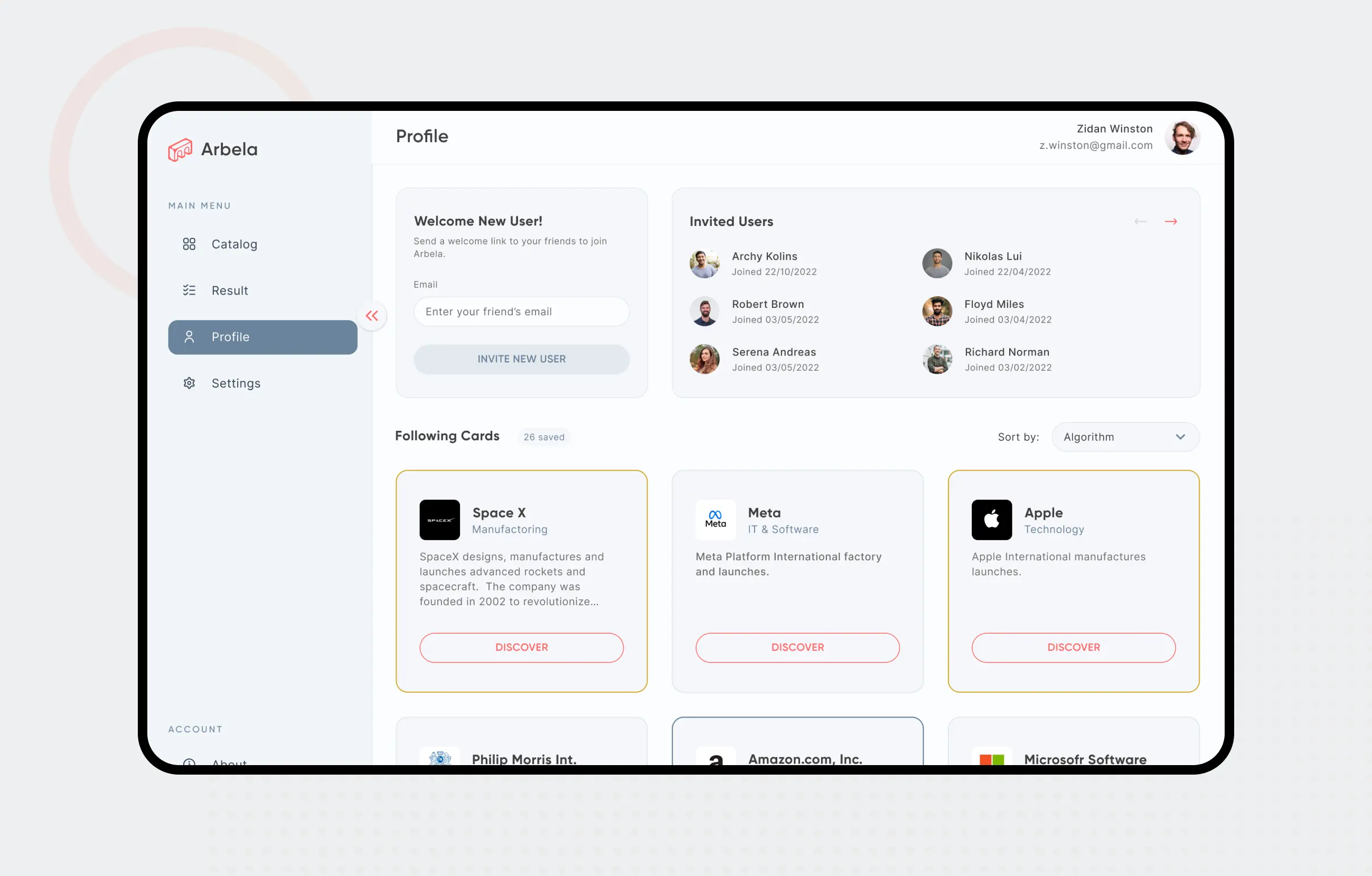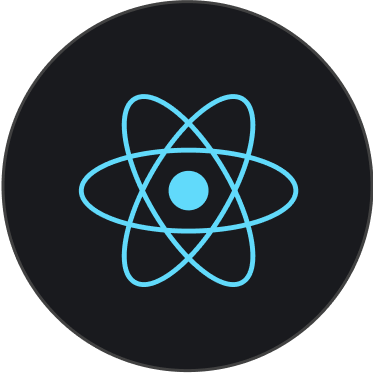Web Development
Mobile Development
UX/UI Design
Staff Augmentation
CTO as a Service
Dedicated Team
Low code development
Web Development
Mobile Development
UX/UI Design
Staff Augmentation
CTO as a Service
Dedicated Team
Low code development
Node.js Development Company
Node.js Development Services We Provide
Custom Node.js Backend Development
We build reliable backend systems designed to handle real-time interactions, complex business logic and high user activity. The focus is always on security, speed and long-term scalability.
Node.js Product Scaling and Performance
If your platform is growing, we help it grow smoothly. Our team enhances performance, restructures bottlenecks and adds new functionality without interrupting day-to-day operations.
Migration to Node.js from Legacy Stacks
We move your existing backend to Node.js in stages. Your product stays live while the new, faster infrastructure is introduced.
Node.js Support and Maintenance
Our team maintains your Node.js application, providing updates, fixes, and continuous improvements.
Node.js Consulting Services
We help you plan, refine, or scale your Node.js architecture so your product grows in the right direction.
NestJS Development
Using NestJS, we create organized and modular backends suitable for enterprise products, microservices and large systems that require a clear, maintainable structure.
Express.js Development
We build lightweight and fast Express.js backends, focusing on REST APIs, middleware, and real-time communication.
Node.js API Development
We create clean, well-documented APIs that support mobile apps, web platforms, and integrations.
Real-Time Applications with WebSockets
We develop chat systems, live dashboards, notifications, and collaboration tools powered by real-time Node.js capabilities.
Serverless Development on AWS or GCP
We build serverless Node.js applications that scale automatically and reduce infrastructure costs.
Projects Delivered by Our Team
Arbela

A collaborative investment platform that is focused on Web3 startups.
Ontrack
-1747136709263.webp)
A platform that makes it easy to track weight progress, reach fitness goals, and get useful insights with smart timeline predictions.
Mentoly

A service marketplace that connects clients with licensed psychologists for online therapy sessions.
Anabolic Pharmacists

An e-commerce platform for sports supplements and medical products.
Build your next project with a Node.js development firm that has delivered over 100 applications
Develop scalable and user-friendly solutions by collaborating with our Node.js development company.
Technology Benefits
1
Asynchronous Support
Node.js handles many operations at once thanks to its non-blocking architecture. Your app stays fast and responsive, even when thousands of users interact in real time.
2
High Performance
Node.js runs on Google’s V8 engine, which compiles JavaScript into machine code. This makes it incredibly fast and great for handling heavy workloads.
3
Real-Time Capabilities
Node.js development is perfect for real-time features like chats, notifications, and live updates. It can send and receive data instantly between the server and users.
4
Scalable Architecture
Node.js supports lightweight microservices and modular architecture, making it easy to scale applications as your business grows.
5
Rich Ecosystem
Node.js has npm, the largest package library in the world. This gives you access to tons of pre-built modules and tools to speed up development.
6
One Language Across the Stack
Your team can work with JavaScript on both front-end and back-end.
7
Microservices Ready
Node.js is a perfect fit for distributed systems with multiple independent services.
Stages of work
Team
Tech Stack We Use
Front-end
Back-end
Mobile
Deployment
CMS
QA
Integrations
Get a Consultation with Senior Node.js Developers
Talk to senior Node.js developers about your product, tech stack, and next steps.
Name
Why Choose Our Node.js Development Company
1
Skilled and Experienced Team
Most of our developers are senior and mid-level engineers with more than five years of practical experience. We’ve worked on over 100 projects and know how to handle complex products without overengineering.
2
Niche Expertise in SaaS, Fintech, E-commerce
We build Node.js solutions for industries where performance and scalability matter the most. Our team understands the specifics of these domains and adapts the architecture accordingly.
3
Flexible Cooperation Models
Whether you need a dedicated team, a one-time project, or ongoing support, we provide flexible collaboration options to match your business requirements.
4
Advanced Tools and Frameworks
We work with NestJS, Express.js, TypeScript, WebSocket and other modern tools to create stable and scalable backends.
5
Efficient Development with AI
We use AI tools and the latest technologies to streamline processes and accelerate development, delivering results faster without compromising quality.
6
Security First Delivery
We follow secure coding practices, data protection standards, and reliable authentication methods.
What does a Node.js development company do?
We design and build backend systems, APIs, microservices and real-time functionality using Node.js. Our team focuses on creating fast, secure and scalable server-side solutions that fit your product goals.
Why choose Node.js for web development services?
Node.js is known for its speed and ability to handle many concurrent requests. It’s a strong choice for products that need efficiency, smooth performance and quick response times.
Can you migrate an existing backend to Node.js without downtime?
Yes. We migrate your backend in phases, keeping the current system active while the new one is rolled out. This approach minimizes risks and avoids interruptions for your users.
How do you ensure performance, scalability and reliability?
We fine-tune the backend architecture, use efficient database queries, apply caching, and optimize API design. These steps help the system stay stable as traffic grows.
Do you build real-time apps such as chat or live dashboards?
Yes. We create real-time features using WebSockets and event-based architectures. Live dashboards, chats, notifications and streaming updates work seamlessly.
What engagement models does your Node.js app development company offer?
You can work with a dedicated development team, choose full-cycle product development, or rely on ongoing support for long-term projects.
How much does a typical Node.js project cost and how long does it take?
The timeline depends on the size of the project, features and integrations. After discussing your requirements, we provide a detailed estimate with clear milestones.
Do you provide maintenance and support after launch?
Yes. We help keep your backend stable with regular updates, monitoring, performance improvements and bug fixes.
Can you audit and optimize an existing Node.js codebase?
We can review your code, identify issues affecting speed or stability, and propose improvements for structure, performance and security.
Which databases and cloud platforms do you recommend with Node.js?
We usually work with PostgreSQL, MongoDB, Redis and modern cloud platforms such as AWS, GCP or Vercel. The final choice depends on the specific needs of your application.
We would love to help.
What are you interested in:
Name
Tell us about your project and goals
0/1000
Add your file

-1747731627136.png)
-1749023935755.png)


-1747731983305.png)

-1747732042514.png)

-1747732097673.png)

-1747732122263.png)

-1747732160762.png)

-1747732191631.png)